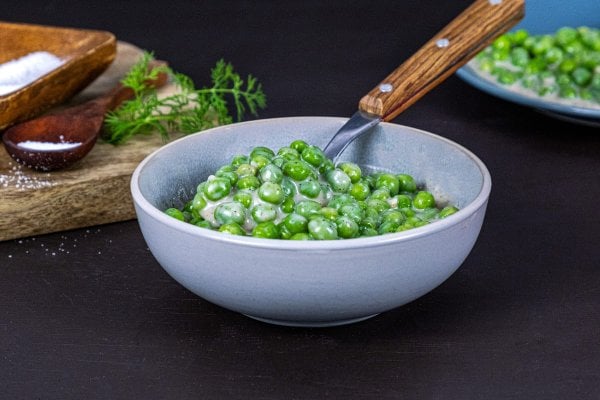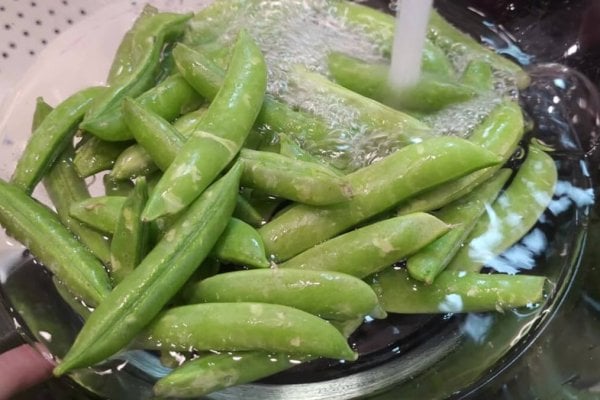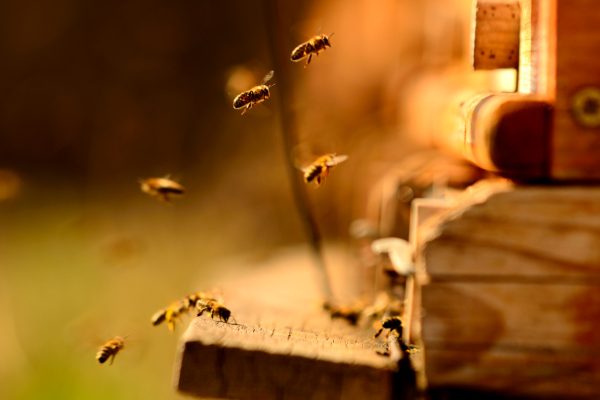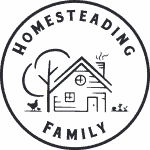In today’s world, keeping things clean and disinfected is very important. But many disinfectants you buy have dangerous chemicals that are bad for your health and the world. I love natural homemade cleaning recipes made without the bad stuff. Today, I’m sharing my homemade disinfectant spray that is safe and easy to use.

Table of Contents
ToggleWhy I Love Homemade Cleaners
This DIY spray uses things you probably already have on hand, eliminates those one-use plastic bottles and saves money by using ingredients you can easily buy in bulk.
Homemade cleaners are a better choice than store-bought cleaners full of harsh chemicals, common toxins, or chlorine bleach. They are gentler on your skin and the air.
By making your own, you control what goes in them (like the potency and scent). So, you can clean your home safely with easy-to-make products that are kind to nature. I’ve been making homemade cleaners for years, including my homemade glass cleaner, homemade cleaning paste, this all-purpose cleaning spray and even a DIY all-purpose cleaning powder.

How to Make Disinfectant Spray
To make a disinfectant spray cleaner, you start with my homemade all-purpose cleaner and make a couple of changes. Instead of using the full amount of vinegar, we only use half the amount of vinegar and add in alcohol for its disinfecting properties.
You can easily find the ingredients needed at the store or through Azure Standard. Josh and I have been purchasing from Azure Standard for over twenty years now. I will only buy distilled white vinegar from them because their solution is 11% vinegar (store-bought brands are only 5%). So, for any recipe that calls for regular distilled white vinegar, you can actually cut the amount in half. That means for every gallon of vinegar I purchase from Azure, I’m actually getting two gallons worth.
Furthermore, I can trust that my vinegar is made from non-GMO crops and never from petroleum. Beyond that, Azure Standard has a special deal for first-time customers! If you place a qualifying order of $100 or more and use coupon code “HomesteadingFamily15” you’ll receive 15% off your order.

Ingredients & Supplies Needed
To make a disinfectant spray, you only need four ingredients:
- Water – If you are using your disinfectant spray within a couple of weeks, you can use regular tap or filtered water. However, if you want this recipe to have a longer shelf-life, use distilled water. It doesn’t have impurities or minerals, unlike tap water.
- Distilled White Vinegar – White vinegar is key for homemade cleaners. It’s a great disinfectant and deodorizer. Because of its acid, it fights bacteria well. You can use it on many home surfaces but not on delicate ones like marble. It’s cheap, good for the environment, and can take the place of a lot of store-bought cleaners. (Source)
- Vodka or Rubbing Alcohol – These both provide some disinfecting properties. If you don’t have vodka, you can use rubbing alcohol.
- Essential Oils – Essential oils come from plants and are very strong. They can make your homemade cleaners smell nice and add a boost of extra cleaning power. For example, tea tree oil fights germs, and citrus oils cut through grease. Always check if an oil is safe before using it. Some oils are harmful to pets. (Source)
- Glass Spray Bottle – I like to use glass cleaning bottles to eliminate more plastic in the home. They’re easy to clean, reusable and the perfect size to hold in my hand. (Learn more ways to have a zero-waste home here.)
- Funnel – Having a funnel will keep spills and messes from happening!

Essential Oil Options
Essential oils are a great way to improve your homemade all-purpose spray. They’ve been used for health benefits, in cosmetics, and to improve mood. Including them in your cleaning routine adds a boost of natural cleaning power.
- Tea Tree Oil – Tea tree oil, also called melaleuca, is a go-to for homemade cleaners. It’s natural and a strong disinfectant. It’s been known to fight off bacteria, fungi, and even viruses. A few drops in your cleaner can make it more powerful against germs and smells. But remember, it can irritate the skin and be toxic to pets if too concentrated.
- Citrus Oils – Lemon, orange, and grapefruit oils add a nice, clean scent. They’re not just about fragrance, though. These oils break down grease and kill germs. So, they boost your DIY cleaners’ performance. Lemon oil, powered by limonene, fights grease and dirt. Orange oil works similarly and leaves an uplifting scent behind.
- Germ-Fighting Blends – There are also many germ-fighting blends. They’re known for their virus and bacteria-fighting oils. It usually includes a combination of lemon, cinnamon, eucalyptus, clove, and rosemary. This blend of essential oils will level up your cleaner’s germ-killing ability.

Step-by-Step Directions
- Add all ingredients to a glass spray bottle.
- Add the lid and give it a few good shakes.
- Label and date the bottle and store it out of direct sunlight in a cool location.
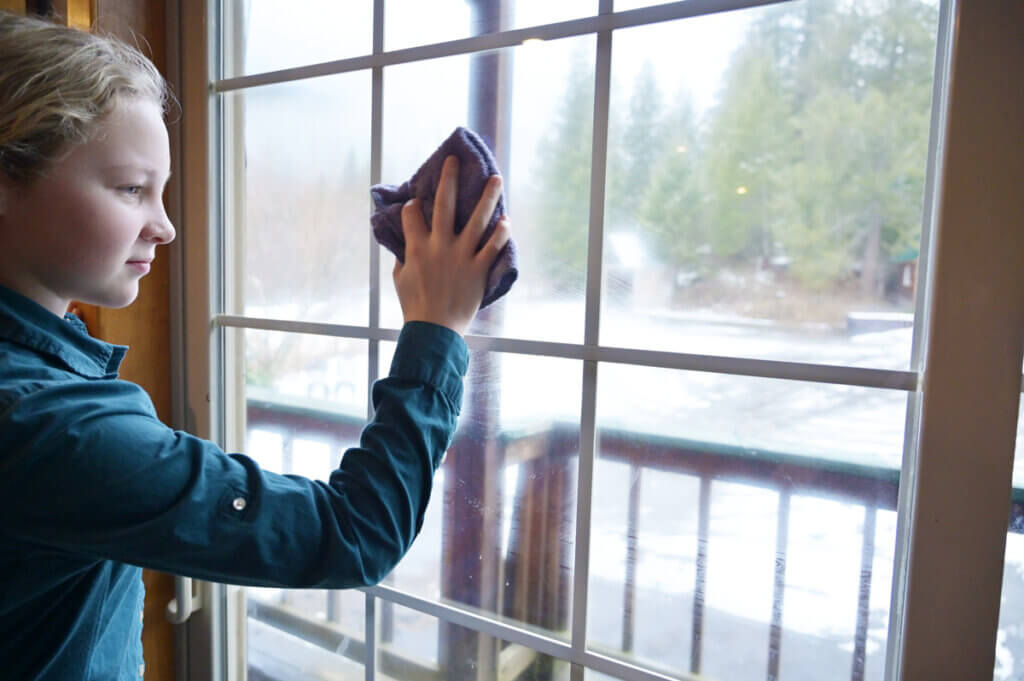
Uses for Disinfectant Spray Cleaner
This homemade disinfectant spray can clean many surfaces. It’s great for disinfecting door handles and light switches. But, it’s also perfect for countertops, sinks, bathrooms, and kitchens. The formula is safe for kids and pets. Plus, it smells good and lifts your mood. It’s a must for keeping your home clean.
| Disinfectant Ingredient | Benefits | Effective Against |
|---|---|---|
| 70% Isopropyl Alcohol | Widely used in healthcare settings as a disinfectant, killing viruses, fungi, and most bacteria | Viruses, fungi, and bacteria |
| Vinegar | Contains acetic acid that kills bacteria and viruses by chemically changing their proteins and fats, destroying their cell structures | Bacteria and viruses |
| Tea Tree Oil | Has antibacterial properties, making it effective for disinfecting purposes | Bacteria |
| Lemongrass Oil | Has antibacterial properties, making it effective for disinfecting purposes | Bacteria |

Storage and Shelf Life
Making your own cleaning spray is great. But it’s key to store it correctly and know how long it will last. Use a glass bottle that seals tight to keep your spray fresh and distilled water to make your cleaner last longer.
Depending on the water, your homemade disinfectant spray cleaner will last anywhere from 2-4 weeks (with regular tap or filtered water) or up to 3-6 months (with distilled water). Keeping your cleaners in a cool, dark place also helps.

Safety Considerations
When you make and use this disinfectant spray at home, safety is key. Make sure the room has plenty of air flowing through. This is very important, especially if your mix has alcohol. Too much of the fumes can make you feel uncomfortable.
Keep the spray away from your eyes and skin. And, always put it in a place that’s hard for kids or pets to get to.
Some things to remember: don’t use this spray on marble or granite. It might leave marks. Clean the area well before you disinfect. This helps the spray do its job better.
Are you or someone in your home living with asthma? Using any disinfectant can be harder on the lungs, so always be careful. Wear gloves that can protect your hands from chemicals, and open windows during the cleaning process. This simple step can lower the chance of getting sick from using strong cleaning products.

Other Posts You May Enjoy
Check out these other common household products and their many cleaning uses around the home:
- Cornstarch Uses
- Epsom Salt Uses
- Salt Uses
- Citric Acid Uses
- Dish Soap Uses
- Hydrogen Peroxide Uses
- Vinegar Uses
- Borax Uses
- Washing Soda Uses
- Baking Soda Uses
- Cream of Tartar Uses

Homemade Disinfectant Spray
Equipment
- 16 oz Glass Spray Bottle
- Funnel
Ingredients
- 1.25 cups distilled water
- 1/4 cup white vinegar
- 1/4 cup vodka or rubbing alcohol
- 15 drops essential oil
Instructions
- Using a funnel, add all ingredients to a glass spray bottle.
- Add the lid and give it a few good shakes.
- Label and date the bottle and store it out of direct sunlight in a cool location.











